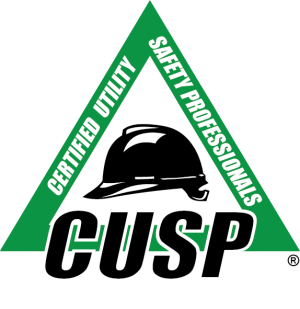Safety is paramount in all aspects of our lives, and nowhere is it more crucial than in the utilities industry. Utility companies are tasked with providing essential services like electricity, gas, and water to communities, making the safety of their operations of utmost importance. To ensure the highest safety standards, the role of a Certified Utility Safety Professional Certification has emerged as an essential certification within the industry. In this comprehensive article, we will delve into the world of CUSP certification, exploring its significance, the requirements, the certification process, the benefits it offers, and the future of utility safety.
Understanding CUSP Certification
What is CUSP Certification?
The Certified Utility Safety Professional (CUSP) certification is a credential that validates an individual’s expertise in utility safety management. Awarded by the Utility Safety & Ops Leadership Network (USOLN), the CUSP designation signifies a commitment to safety excellence in the utility sector. It is recognized and respected by utility companies, regulatory bodies, and industry professionals.
The Significance of CUSP Certification
Safety is non-negotiable in the utilities industry, where accidents can lead to catastrophic consequences. The CUSP certification plays a pivotal role in promoting a culture of safety within utility companies. It ensures that professionals are well-versed in safety practices, regulations, and risk management, thereby reducing the likelihood of accidents and incidents.
Requirements for CUSP Certification
Eligibility Criteria
To pursue CUSP certification, candidates must meet specific eligibility requirements. While these requirements may evolve over time, they typically include:
a) A minimum of three years of experience in the utilities industry, with two of those years in a safety-related role.
b) Successful completion of the CUSP examination.
The CUSP Examination
The CUSP examination is a rigorous test designed to assess the candidate’s knowledge of safety management in the utilities industry. The exam covers various aspects of utility safety, including OSHA regulations, incident prevention, hazard identification, emergency response, and more. Passing the examination is a critical step toward earning CUSP certification.
The CUSP Certification Process
Application Process
The journey to becoming a Certified Utility Safety Professional begins with the application process. Candidates need to submit their applications online, along with any required documentation that proves their eligibility.
Preparation for the CUSP Examination
Preparation is paramount for success in the CUSP examination. Candidates can avail themselves of various resources, including study guides, practice exams, and online courses. These resources are instrumental in helping candidates understand the exam’s content and structure.
Taking the CUSP Examination
The CUSP examination is typically administered through computer-based testing centers across the United States. It is important to schedule the exam in advance and arrive well-prepared. The examination consists of multiple-choice questions and covers a wide range of topics related to utility safety.
Post-Examination Steps
Upon successfully passing the CUSP examination, candidates must complete any additional requirements stipulated by USOLN. These may include submitting proof of their education, experience, and other qualifications.
Issuance of the CUSP Certification
Once all the requirements have been met, USOLN issues the CUSP certification to the candidate. The certification is valid for a specific period and must be renewed to remain in effect.
Benefits of CUSP Certification
Career Advancement
Earning a CUSP certification opens doors to numerous career opportunities within the utilities industry. It demonstrates a commitment to safety and professional growth, making CUSP-certified individuals highly sought after by utility companies.
Enhanced Safety Expertise
CUSP certification equips professionals with comprehensive knowledge and skills in utility safety. This expertise is invaluable in preventing accidents and ensuring the well-being of both workers and the public.
Regulatory Compliance
The utilities industry is heavily regulated, with stringent safety standards imposed by agencies like the Occupational Safety and Health Administration (OSHA). CUSP certification helps professionals stay up-to-date with these regulations, ensuring that their organizations remain compliant.
Network and Recognition
CUSP-certified professionals become part of a prestigious network of individuals dedicated to safety excellence in utilities. This recognition not only enhances one’s professional reputation but also provides opportunities for networking and collaboration with peers in the industry.
The Future of Utility Safety and CUSP Certification
Evolving Safety Challenges
The utilities industry is constantly evolving, with new technologies, materials, and processes being introduced. These changes bring new safety challenges that require proactive approaches to mitigate risks. CUSP-certified professionals are well-prepared to address these challenges by staying informed and updated on the latest safety practices.
Renewable Energy Transition
As the world shifts toward renewable energy sources, such as solar and wind power, utility companies face unique safety concerns. The integration of these technologies into the grid demands a workforce that is well-versed in the safety measures required for these innovative systems. CUSP certification will play a crucial role in training professionals for these new challenges.
Increasing Regulatory Scrutiny
Regulations governing utility safety are becoming more stringent, reflecting the industry’s growing importance and potential hazards. CUSP-certified professionals are better equipped to navigate this changing landscape and ensure compliance with evolving regulations.
Also Read: Accredited Mortgage Professional Certification
Conclusion
The Certified Utility Safety Professional (CUSP) certification is a critical asset for individuals seeking to excel in the utilities industry. It not only signifies a commitment to safety but also equips professionals with the knowledge and skills necessary to prevent accidents and protect the well-being of both workers and the public. As the utilities industry continues to evolve, CUSP-certified professionals will play a pivotal role in addressing new safety challenges and maintaining the highest standards of safety. With CUSP certification, the path to safety excellence in utilities is well-defined, ensuring a brighter, safer future for all.




